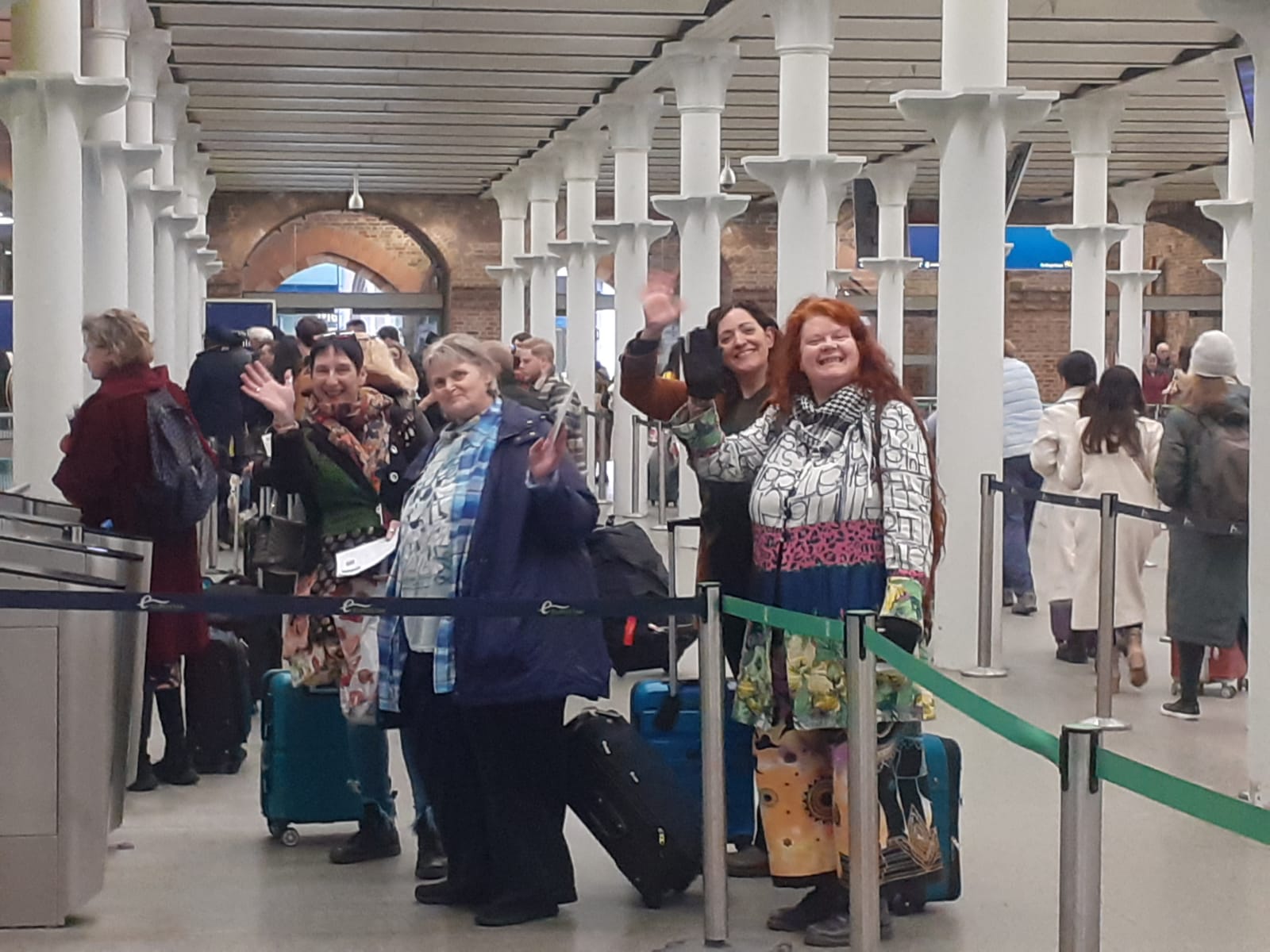Six hours to Geneva, six years in the making
Yesterday Tracey and Julie began the journey from their homes in Stockton-on-Tees towards the United Nations in Geneva. After sleeping one night in London, today they were up before dawn to rush across the city to St Pancras Station where they joined up with Laura who travelled in from the Stroud, and Amanda who lives in London. Only the four of them can make this trip; but Sus, standing in for all the other GRIPP members staying behind, just now gave them a loving send-off. And so they’re off!

First comes a two-hour Eurostar down through the channel tunnel to Paris. It’ll take them another hour to navigate the hustle from the Gare du Nord to the Gare de Lyon. Then three hours through the Morvan Forest, past Lake Nantua, and towards breathtaking views of the Alps. Finally they’ll arrive in Geneva, six hours later….
But it’s actually taken all of us six years to get to this point!
- The seeds of GRIPP were planted in 2019 during a visit to the UK by the UN Rapporteur on Poverty and Human Rights, which led some of us to meet for the first time.
- In 2020 and 2021, we worked on building “a human rights bridge out of poverty”.
- The first time we thought about the UN’s International Covenant of Economic, Social and Cultural Rights (ICESCR), it was 2022. We started to consider whether it might make any difference to our lives and to lives in our communities. Hinda asked us: “How can we judge it unless we try it? Do we dare to kiss the frog to find out what it could be?”
- This led to a mad dash towards the first ICESCR deadlines looming in 2023. Despite the very short timescale, we are proud that we kept our completely participatory process to “climb the mountain” of making our first written submission, and also that we were featured in Amnesty’s magazine.
But that year was a hard one too because our only chance to address the UN Committee on Economic, Social and Cultural Rights (CESCR) was a virtual meeting where Rahwa and Patricia didn’t feel properly seen or heard. And because we are led by lived and living experience of poverty, the many daily obstacles we face never end: crises with health, housing, immigration status, social services, work…. As Brian puts it, “When you’re on benefits, you are constantly being called to account for your life” has made this work even more challenging to engage with.
So in 2024, we regrouped, putting more energy into recruiting new members, deepening our participatory approach by reflecting on our Action Learning, and caring for our own well-being. At the same time, we knew that we had more ICESCR work ahead of us if we were truly committed to kissing the frog to find out if this human rights tools can actually improve lives in our communities. So we wrote a new submission of evidence, and this time we were determined to present it in person, not virtually.
So now here we are: some beginning the six-hour train journey; others staying home to spearhead the communications about it (thanks to Sarah, Taliah, Mandy, Alimamy, Angela, Koldo, Helen, and Dylan!); and the rest of us cheering GRIPP on as we wonder where the journey may take us over the next six years!
